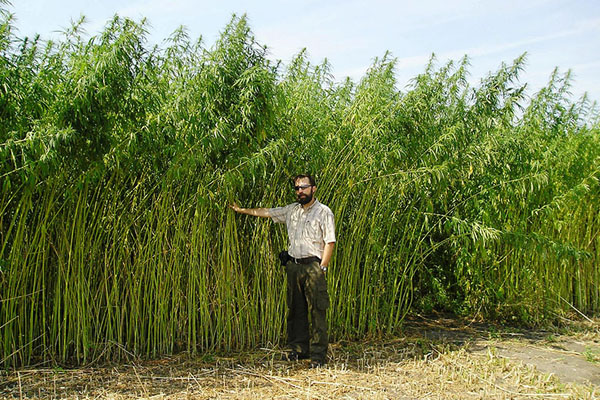Excellent Info On Selecting Hemp Clothing
Wiki Article
What Are The Environmental Advantages Hemp Clothing With A Low Impact?
Low impact fiber hemp clothing provides numerous environmental benefits when in comparison to clothes made of other materials, notably synthetic fibers and cotton that is conventional. Hemp clothing comes with a variety of environmental advantages. It is a fast-growing crop that requires lesser water, pesticides or herbicides compared to other crops. Hemp can adapt to various soil types and climates, which reduces the need for agricultural chemical.
Hemp typically uses a lot less water than traditional cotton. Cotton is renowned for using a lot of water. It makes hemp a more water-efficient choice for clothing production.
Hemp can often be cultivated without synthetic pesticides, herbicides or any other chemical. This minimizes the ecological impact of chemical agriculture.
Hemp cultivating can improve soil quality thanks to its deep-rooted roots system that aids in preventing erosion and compaction of soil. Hemp cultivation also enhances the soil for future crops.
Biodegradability Hemp fibers are biodegradable and they break down over time. They help reduce the environmental impact of textile waste. Synthetic fibers such as polyurethane could take many years to decompose.
Lower Carbon Footprint Hemp fibers are created with a lower carbon footprint than synthetic materials. Additionally, during its development, hemp can absorb carbon dioxide from the air, acting as carbon sink.
Hemp clothing can last for many years. The best hemp clothing will last for a long time, reducing the need for frequent replacements and further decreasing waste.
Hemp plants are naturally intolerant against pests. This eliminates the requirement for pesticides.
Hemp is an incredibly versatile textile which can be utilized for clothing, bags, or accessories.
Regenerative agriculture- Some sustainable farming methods incorporate hemp into systems of regenerative agriculture which aim at restoring and enhancing ecosystems, while also producing plants. This approach is beneficial for the environment.
While hemp offers many environmental benefits, its overall sustainability is also affected by other factors, such as the transport, dyeing process and the behavior of consumers. Similar to any industry, there are variations in standards and production practices. It is essential to select certified organic or sustainable clothing to get the best environmental benefits. See the top read review for hemp clothing for more examples including jeans hemp, hemp fleece fabric, womens hemp clothing, wholesale hemp fabric, hemp sweatshirt, hemp sportswear, hemp bathing suit, nomad hemp wear, hemp golf shirts, clothes made from hemp and more.

What Makes Hemp Clothing More Useful And Technologically Superior To Conventional Fibres Compared To Other Fabrics?
Hemp clothing has several advantages with regard to performance and technology over conventional fabrics, as well as being more environmentally friendly. Hemp clothing is an excellent alternative to go green because it's dry and breathable.
Hemp fibres are highly permeable. They also help to wick away moisture, which makes hemp clothing very comfortable in all circumstances. They can help wick away moisture, keeping the wearer cool and dry in the heat of summer.
Temperature Regulation
Hemp clothing has great thermoregulatory properties. Hemp clothing will help keep you warm by capturing warmth close to the body and help cool you down during hot weather by allowing heat and moisture to escape. This natural control of temperature can lessen the requirement to change your clothes often.
Durability & Longevity
Hemp fibers are known for their durability. Hemp clothing is generally more durable, robust and resistant to wear than other fabrics like cotton. This durability means that hemp clothes last longer, which reduces the need for replacements, and consequently the environmental impact.
UV Protection
Hemp fibers provide natural UV protection, shielding the skin from harmful UV radiation. This is particularly beneficial for outdoor activities.
Biodegradability:
Hemp clothing biodegrades over time, meaning it breaks down when disposed. This helps reduce the environmental impact of waste textiles, unlike synthetic fibers, which can be a problem in landfills for long periods of time.
Low Environmental Impact-
Hemp cultivation generally requires less synthetic pesticides and herbicides compared to conventional cotton. It is also environmentally friendly because it uses less. The eco-friendly aspects are further amplified through organic farming.
Carbon Sequestration
Hemp plants are able to capture carbon dioxide in the atmosphere as they expand. The cultivation of hemp acts as a carbon sink, which assists in reducing the amount of greenhouse gases.
Sustainable Crop Rotation
Hemp can be incorporated into crop rotations to improve soil health, and decrease the risk of diseases and soil depletion. This sustainable farming practice contributes to its eco-friendliness.
Versatility:
For the creation of blends of fabrics that are high-performance and eco-friendly hemp fibers can be incorporated with other materials such as organic cotton and recycled Polyester. This versatility lets textiles be innovative and environmentally sustainable.
Low Toxicity
Hemp is naturally low in harmful substances and does not require extensive processing with chemicals in its manufacturing, which reduces the environmental impact.
It is important to remember that while hemp has numerous eco-friendly and functional advantages, the overall sustainability of clothing also depends on factors like dyeing processes as well as transportation and ethical labor practices. To make conscious choices for the environment consumers should seek out clothing brands that are committed to sustainability integrity, transparency, and ethical manufacturing practices, while making use of hemp and other natural fibers in their clothing. View the most popular full report on hemp clothing for site advice including hemp apparel fabric, womens hemp clothing, hemp shirts mens, hemp tees wholesale, hemp denim, womens hemp clothing, hemp coat, hemp clothing wholesale, hemp yoga clothes, jungmaven clothing and more.

Bamboo Clothing Is Eco-Friendly And Comfortable.
Bamboo clothing offers several advantages in terms of comfort and the environment- Comfort-
Softness Bamboo fabric is well appreciated for its incredible suppleness. It has a soft velvety texture that is comfortable to wear. Bamboo clothing is extremely soft and popular for loungewear, activewear intimate clothing, and different kinds of clothes.
Breathability - Bamboo fibers can be naturally breathable and moisture-wicking. The tiny gaps in the fabric allow air to flow which keeps you comfortable and cool in hot weather. Moisture-wicking fabrics can pull sweat off your skin, and also reduce the sensation of dampness.
Bamboo clothing is a great option to regulate temperature. It helps keep you warm when temperatures drop by retaining warmth close to your skin. It can also help you to stay cool during hot weather because it allows excessive heat and moisture to escape. Bamboo clothing can adapt to temperature fluctuations makes bamboo clothing ideal for wearing all year.
Hypoallergenic Bamboo fabric is hypoallergenic and gentle on sensitive skin. Bamboo fabric is more likely than other fabrics to trigger allergic reactions or irritations therefore it's an ideal choice for people with sensitive skin or allergies.
Bamboo fibers have natural antimicrobial properties that prevent the spread and growth of bacteria which causes odor. This characteristic contributes towards the breathability and comfort of bamboo clothes even during exercise.
Environment-
Sustainability- Bamboo is a highly durable and sustainable resource. Bamboo is one the fastest-growing plants in the world. It requires only a small amount of water to grow and requires no pesticides. Bamboo is harvested and not killed it, because the root system of bamboo regenerates.
Low Water Usage- Bamboo is inherently water-efficient. It thrives with only minimal irrigation and can be planted using rainwater only, reducing the environmental impact caused by water use in agriculture.
Biodegradability Bamboo clothing naturally breaks down when it is thrown out. This property reduces the accumulation of non-biodegradable textile waste in landfills.
Carbon Sequestration. Bamboo is a great plant to store CO2 during its rapid growth. Bamboo farming can reduce greenhouse gas emissions and act as a carbon source.
Chemical Reduction- The manufacture of bamboo fabric typically involves less chemical treatment and processing steps than some other textiles, reducing the environmental impact of textile manufacturing.
Closed-Loop Production- Some bamboo fabric manufacturing processes employ closed loop systems that recycle and reuse water and chemicals, while minimizing the amount of waste and pollution.
The impact on the environment of bamboo clothing is in relation to the method by which they are constructed and if the bamboo comes from forests that are sustainably and responsibly managed. Bamboo clothing made using eco-friendly practices will provide the greatest environmental benefit. See the top rated https://www.koraoutdoor.com/collections/bamboo for website tips including bamboo cay shirts christmas, bamboo womens shirts, bamboo cotton shirts, bamboo polo shirts, mens bamboo clothing, bamboo fabric clothing, faceplant pajamas, yala pajamas, bamboo chafing shorts, bamboo jeans brand and more.
